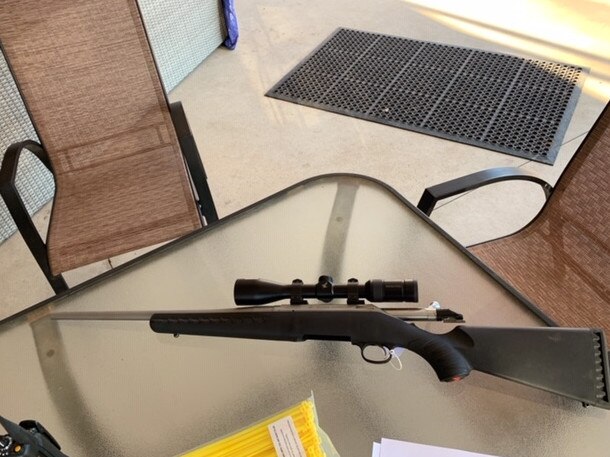Roger Weaver: Adelong man loses court appeal over gun case
A bushie amassed an arsenal of weapons, telling police he was worried about ‘external threats’ and feared the country would be taken over and he’d need to help the army.
The Wagga News
Don't miss out on the headlines from The Wagga News. Followed categories will be added to My News.
A gun-loving bushie who copped four years in prison for a horde of illegal weapons has lost his bid for freedom despite claiming his lawyers let him down and allowed a judge to see his police interview which ultimately resulted in him being jailed.
Riverina man Roger Leslie Weaver, 58, lost a Supreme Court appeal this week after three Justices upheld his convictions over the illegal stash of firearms.
Weaver, a well-known man in his local community of Adelong, had tendered 31 character references when he was sentenced in a bid to avoid him spending any time in jail and serve his punishment as an intensive corrections order in the community.
Instead he was sentenced to four years and four months behind bars after what his legal team says was a miscarriage of justice when his last lawyer allowed his incriminating police interview to be used as evidence.

They believe the interview swayed the judge in his case to consider his offending more serious than it was.
His lawyers argued that the prison term was also excessive and that the sentencing judge thought Weaver himself shortened one of the firearms, among other grounds filed in the Criminal Court of Appeal.
Weaver was arrested after a tip off from a member of the public at his home where police seized 30 unregistered rifles and a pistol, as well as thousands of rounds of ammunition.
Many of the 31 unregistered guns were passed down from his father although several were picked up by Weaver during his job as a “scrap collector” of deceased estates, a court previously heard.
Weaver said that given he had not surrendered the guns during an amnesty he kept the unregistered ones in a locked box “until the laws would maybe reverse, or I passed”.

His lawyers had argued for a lighter sentence as his answers in the police interview differed to his excuse in court that he missed the amnesty, locked them away and left them in the “too hard basket”.
“A couple of reasons, one … and we did talk about it, it’s not a conspiracy theory so … I believe in external threats to, to me, to us, to our country,” he told police.
“It’s probably a silly extreme way of lookin’ at it, but, … it’s happened around the world where countries get taken over, communities get taken over, and then the civilians have to help the police and the Army.
“I am not a, a rebel, I’m not a terrorist, I’m not an activist, it just seemed like a good idea to, to collect them.”
Allowing that interview to be heard was a miscarriage of justice, his lawyers argued.
But the court found it did not make Weaver’s lawyer incompetent and the incompetence allegations were not the subject of any findings by the court.
His appeal was rejected by the three Supreme Court Justices, partly, because they believed even without the interview there was other evidence that was inconsistent with Weaver’s explanation.
He will be let out on parole after serving two years of his prison term.




